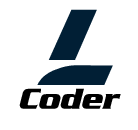
Daily Archives: May 25, 2023


How to unblock BBC iPlayer for free from anywhere in ...

Wordle today: Here’s the answer and hints for May 26

Turns out Elon Musk's FDA prediction was only off by about a month. After reportedly denying the company's overtures in March, the FDA approved Neuralink's application to begin human trials of its prototype Link brain-computer interface (BCI) on Thursday.
Founded in 2016, Neuralink aims to commercialize BCIs in wide-ranging medical and therapeutic applications — from stroke and spinal cord injury (SCI) rehabilitation, to neural prosthetic controls, to the capacity "to rewind memories or download them into robots," Neuralink CEO Elon Musk promised in 2020. BCIs essentially translate the analog electrical impulses of your brain (monitoring it using hair-thin electrodes delicately threaded into that grey matter) into the digital 1's and 0's that computers understand. Since that BCI needs to be surgically installed in a patient's noggin, the FDA — which regulates such technologies — requires that companies conduct rigorous safety testing before giving its approval for commercial use.
In March, the FDA rejected Neuralink's application to begin human trials reportedly in part due to all the test animals that kept dying after having the prototype BCI implanted. According to internal documents acquired by Reuters in December, more than 1,500 animals had been killed in the development of the Neuralink BCI since 2018. The US Department of Agriculture's (USDA) Inspector General has since launched an investigation into those allegations.
The FDA's reticence was also born from concerns about the design and function of the interface when implanted in humans. "The agency’s major safety concerns involved the device’s lithium battery; the potential for the implant’s tiny wires to migrate to other areas of the brain; and questions over whether and how the device can be removed without damaging brain tissue," current and former Neuralink employees told Reuters in March.
While Neuralink has obtained FDA approval to begin its study, the company is not yet seeking volunteers. This is the result of incredible work by the Neuralink team in close collaboration with the FDA and represents an important first step that will one day allow our technology to help many people," Neuralink Tweeted on Thursday. "Recruitment is not yet open for our clinical trial."
Update, 05/26/23, 11:28 AM ET: This story has been updated to include a response from Physicians Committee for Responsible Medicine, the animal welfare advocacy group that previously uncovered Neuralink's animal deaths.
On May 25, 2023, Elon Musk’s brain-computer interface company Neuralink shared via Twitter that it had received approval from the FDA to begin human clinical trials. It is important to remember that such FDA approval is not an acquittal of Neuralink’s well-documented track record of animal cruelty and sloppy scientific studies. The approval is also not a guarantee that a Neuralink device will someday be commercially available as a significant number of medical devices that begin clinical trials never reach the market. In addition, Neuralink will likely continue to conduct experiments on monkeys, pigs, and other animals even after clinical trials have begun. Past animal experiments revealed serious safety concerns stemming from the product’s invasiveness and rushed, sloppy actions by company employees. As such, the public should continue to be skeptical of the safety and functionality of any device produced by Neuralink.
This article originally appeared on Engadget at https://www.engadget.com/neuralink-receives-fda-clearance-to-begin-human-trials-of-its-brain-computer-interface-001504243.html?src=rssThe Physicians Committee continues to urge Elon Musk and Neuralink to shift to developing a noninvasive brain-computer interface. Researchers elsewhere have already made progress to improve patient health using such noninvasive methods, which do not come with the risk of surgical complications, infections, or additional operations to repair malfunctioning implants. Noninvasive devices are already demonstrating the ability to improve quality of life for older adults and elderly patients, translate brain activity into intelligible speech, and assist paralyzed patients.
Neuralink receives FDA clearance to begin human trials of its ...

Alone in the Dark’s new footage is full of terror ...

The FDA will apparently let Elon Musk put a computer ...

‘Quordle’ today: Here are the answers and hints for May ...

Shiver at Creepy Art for Tenement, the Latest From Jeff ...

YouTube will let you watch unlimited NFL Sunday Ticket streams, ...

Last February, the Biden administration unveiled its $5 billion plan to expand EV charging infrastructure across the country. Not only with the Department of Transportation help states build half a million EV charging stations by 2030, the White House also convinced Tesla to share a portion of its existing Supercharger network with non-Tesla EVs. On Thursday, Ford became the first automaker to formalize that pact with Tesla, announcing during a Twitter Spaces event that "Ford electric vehicle customers access to more than 12,000 Tesla Superchargers across the U.S. and Canada," starting in Spring 2024, per the company release.
Because Teslas uses a proprietary charger port design for its vehicles, Ford owners will initially need to rely on a Tesla-developed adapter connected to the public charging cable in order to replenish their Ford F-150 Lightning, Mustang Mach-E and E-Transit vehicles. Ford also announced that, beginning with the 2025 model year, it will switch from the existing Combined Charging System (CCS) port to Tesla's now open-source NACS charge port. These 12,000 additional chargers will join Ford's 84,000-strong Blue Oval charging station network.
“Tesla has led the industry in creating a large, reliable and efficient charging system and we are pleased to be able to join forces in a way that benefits customers and overall EV adoption,” Marin Gjaja, chief customer officer of Ford Model e, said in the release. “The Tesla Supercharger network has excellent reliability and the NACS plug is smaller and lighter. Overall, this provides a superior experience for customers.”
This article originally appeared on Engadget at https://www.engadget.com/ford-ev-drivers-will-get-access-to-12000-north-american-tesla-superchargers-next-spring-221752191.html?src=rss